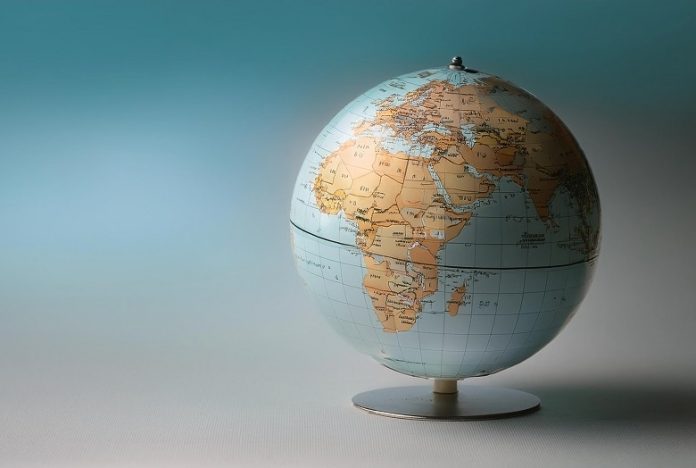The majority of people in most countries polled expect to feel a personal financial impact from the coronavirus pandemic, according to the results. Respondents in Vietnam, China, India and Italy show the greatest concern.
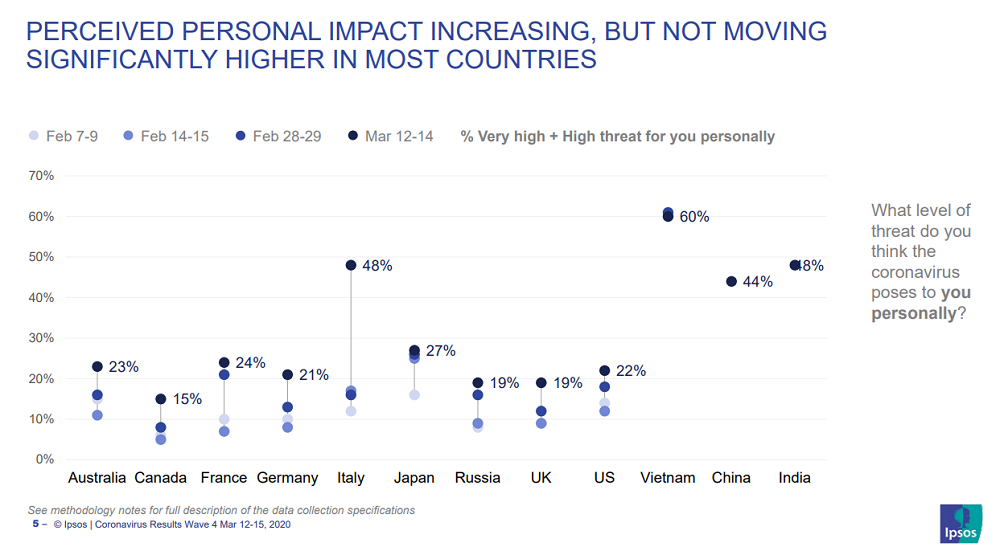
Concerns about employment and businesses have rapidly increased since February, particularly in Italy, France, the UK and the US. In these countries, economic concerns appear to have risen more steeply than concerns relating to the level of threat posed by the virus.
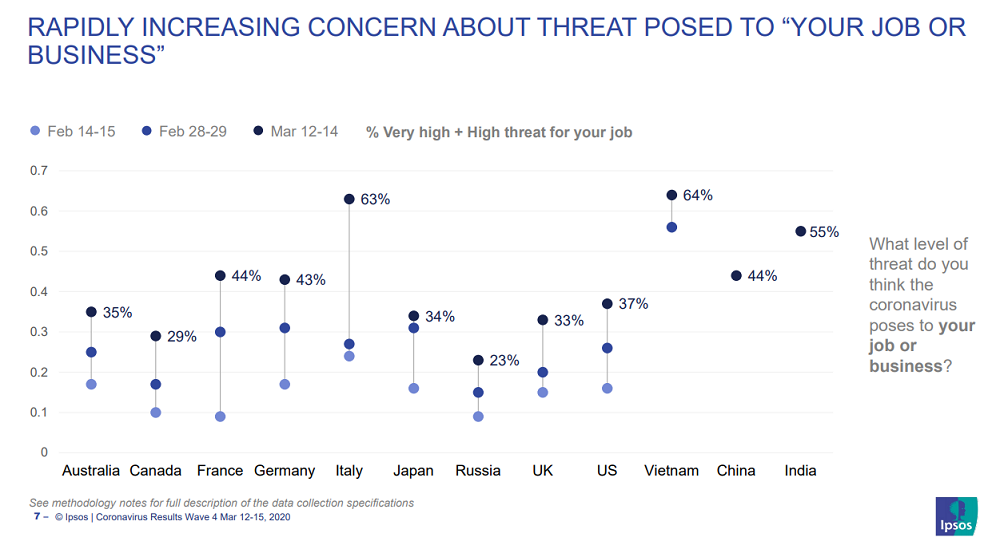
Beyond the economy, the public is becoming more engaged and concerned in countries such as China and Italy, but North Americans “remain somewhat distant”. Public reaction is significantly affected by proximity to hot spots for Covid-19.
Support for closing borders and self-quarantine is present, but this may be “in theory” rather than personal, particularly outside hotspot areas, Ipsos suggests. Agreement with closing borders was highest in Vietnam, India and Italy, and lowest in Canada, Germany, France and the UK.
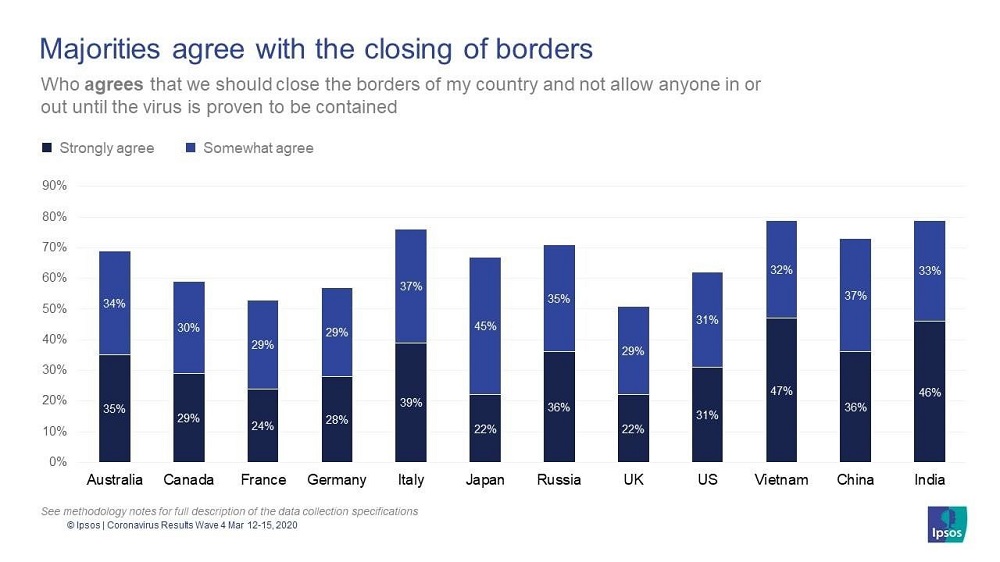
Overall, more of the people polled agreed strongly with self-quarantining if they were diagnosed with coronavirus.
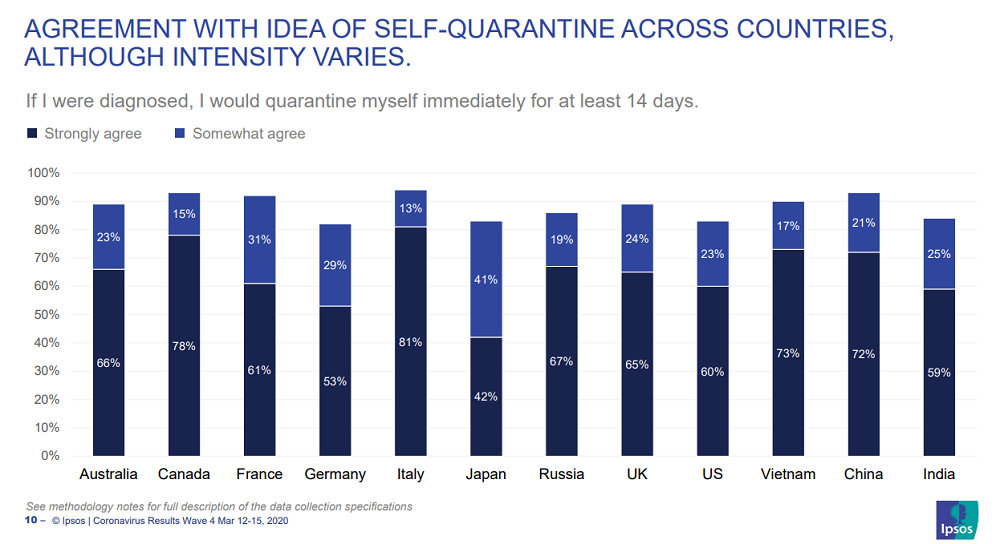
When it comes to personal health, the findings suggest the populations of several nations still do not perceive COVID-19 as a serious health risk. More people now think someone close to them will be infected by the virus, with a significant rise in this perception in Australia, Canada, France, Germany and the UK. Yet, while 75% of Chinese respondents said they thought their health would be “extremely” or “very seriously” affected if they contracted coronavirus, just 23% of UK respondents and 12% of respondents in France said the same.
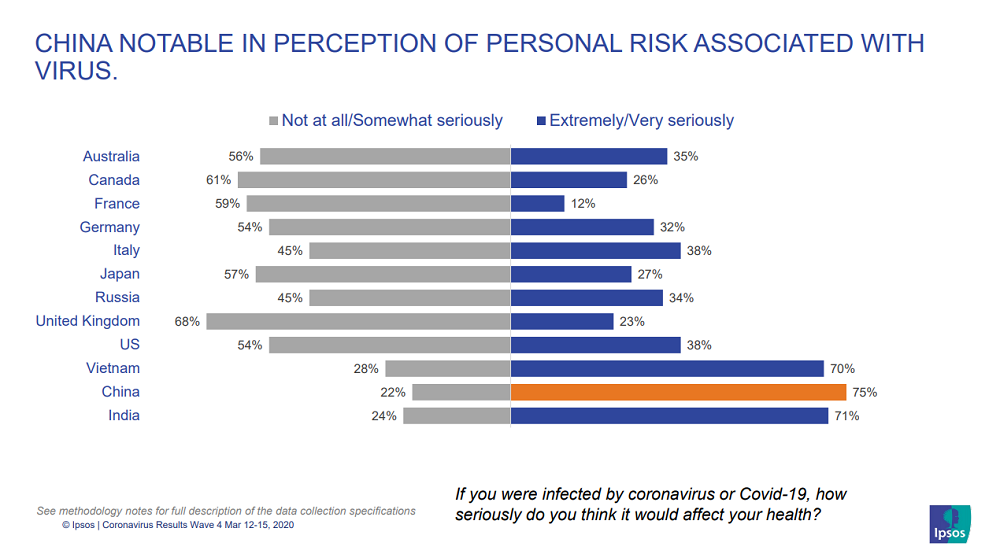
The results do suggest, however, a rise in the perception of threat to respondents’ countries, with significant increases in France and Germany – and of course Italy.
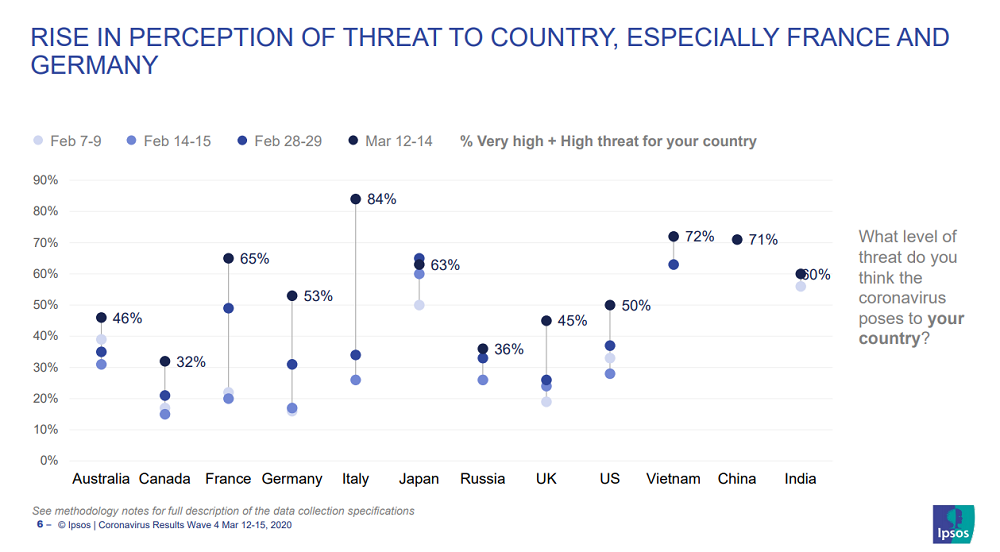
Despite media attention on stockpiling, the poll suggests this activity is still limited in Europe and North America. However, there are concerns about the disruption it could cause. Stockpiling is seen as more likely to lead to shortages than disruption to supply chains; 89% of adults in the UK would blame stockpiling for shortages. The poll also suggests a trend of rising e-commerce in proximity to hot spots: 31% of Italians are more frequently shopping online to buy products they would normally buy in a store, rising to 57% of respondents in Vietnam, 55% in India and 50% in China.
Most countries, including hotspots, expect things to return to normal by June. Trajectories for the disease and confirmed cases suggest this will not be the case, says Ipsos.
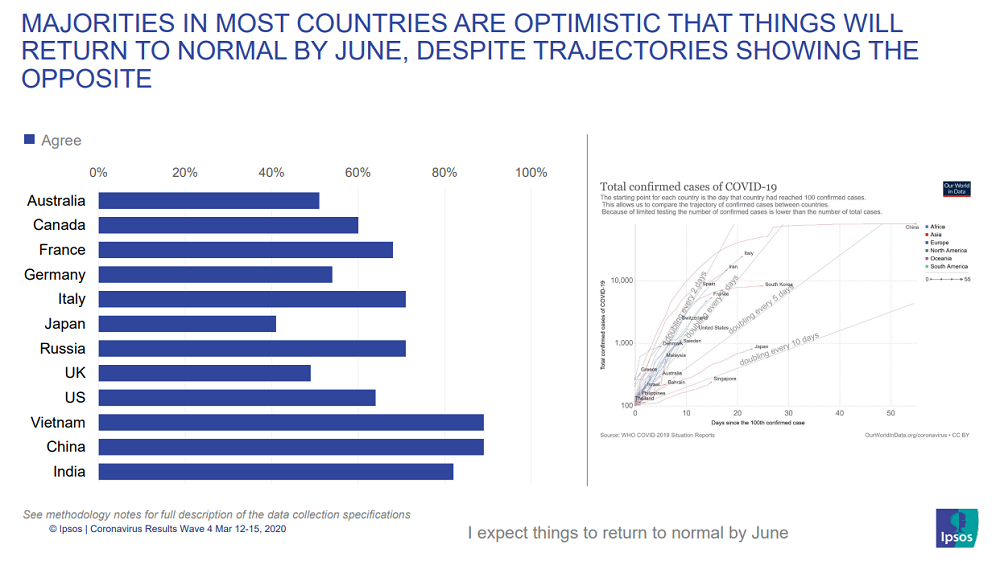
Source: World Economic Forum

